I have started 2023 with a new mission – to get myself, my clients and my future clients even more financially organised. We have some cool tech, a new booking system, an online secure portal for financial modelling and a new communications plan.
What’s Your Plan for 2023?
By Peter Brooke
This article is published on: 3rd March 2023
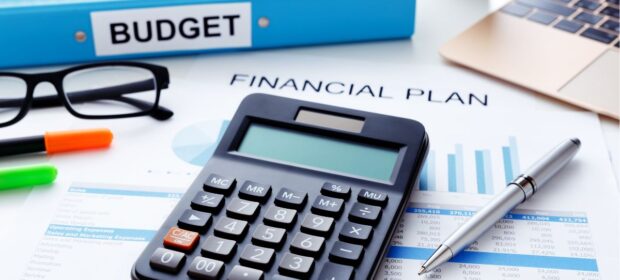
My aim is to help you to become more financially confident throughout 2023 and beyond. I will endeavour to make everything as clear, concise and as interesting as possible – we are in this together!
What is Financial Planning?
Everyone will need some form of financial plan at some point in their lives – but WHY do you need it? And HOW do you do it?
WHY do you need a financial plan?
“people don’t plan to fail, but often fail to plan”
Budgeting for living costs, building up savings, planning for retirement or education, saving for future large expenses, buying property, protecting your family, leaving something for future generations… all of these are considered in a financial plan.
Then do all of this in a new country with a different language, different tax system and different rules and regulations and we can see that having a well thought-out plan in a language you fully understand could be worth its weight in gold!
In addition, for Brits living in Europe there are the added complexities of Brexit since you will now lose access to UK based advice and financial products.

HOW do you create a financial plan?
Fundamentally there are two easy questions to answer which give us the skeleton of the financial plan:
1. What do you earn, spend, owe and own? This is an audit of where you are today, financially.
2. What do you want? This is a list of your hopes and aspirations, let’s call them goals, for the future.
Common ‘goals’ include:
- Can we retire early?
- How much do we need to have to retire?
- Can we pay for our kids private or university education?
- Can we buy that house we want?
- Can we take that trip?
- Can we leave money for the family?
Combining these considerations allows us to create a ‘road map’ for the coming months, years and decades and helps you understand what compromises you might need to make today to achieve the things you want for the future.
You can then feel more confident that you are on the right path to future happiness and security totally aligned to your own personal hopes and aspirations.
HOW do I help you create your financial plan?
Here is a summary of the Spectrum process and how I, as your professional adviser, can help you through the journey of establishing a plan.
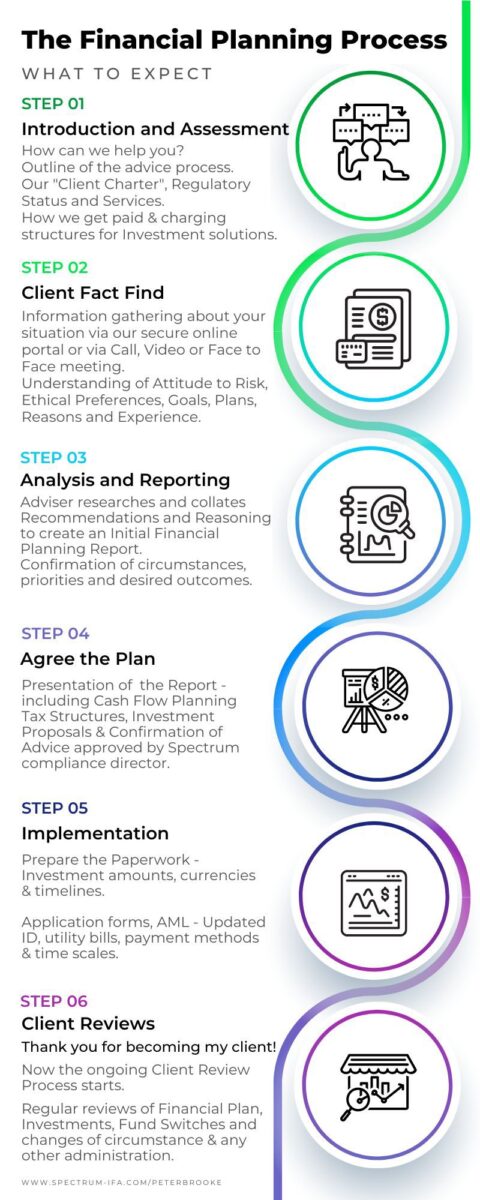

Your Spectrum Adviser – Peter Brooke
I have been in the personal finance industry since 1999 and based in France helping people like you since 2004.
I am a proud family man and love living in France; our two children, both now teenagers, were born in France and will soon be completing their schooling and will be off to university before we know it!
I am a partner and senior adviser in Europe’s largest expatriate financial advisory group; Spectrum have more than 50 advisers across Western Europe and due to our size have terms of business with some of the largest and strongest insurance and investment providers in the world; though we are independent of them.
I have a strong background in investment management and as such sit on the Spectrum Investment Management Committee which provides resources to all of our advisers, and their clients, across Europe.
I have a healthy passion for ethical & sustainable investing as a vital area of focus for the future of investing, our planet and society.
Why did you move to France?
By Spectrum IFA
This article is published on: 23rd February 2023

How many of us dream about moving to a dryer warmer climate? Somewhere that has not only great weather but is packed with history, great architecture and a way of life that has a focus on community and family life.
Amanda Johnson made the move to live in the Loire Valley with her family back in 2006 and has never looked back!
Amanda helps many other expatriates either plan their finances before they move to France or assists clients living in the Loire Valley with their current and future tax and financial planning.
Amanda recently spoke to Kylie Lang from ‘Life in Rural France‘ about why she made the move and how wonderful life in France is.
You can read the full interview here: www.lifeinruralfrance.com/relocating-loire-valley/
Russia’s invasion and its effects on markets
By Michael Doyle
This article is published on: 21st February 2023
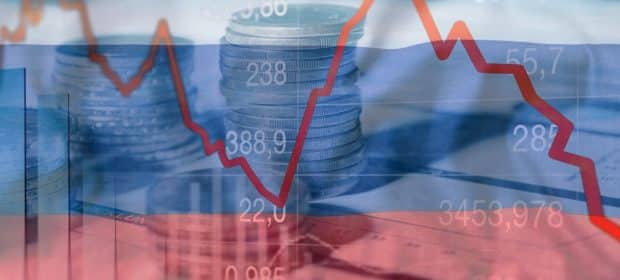
Russia’s invasion of Ukraine has had far-reaching consequences on the global investment market, with investors worldwide facing significant challenges in maintaining returns amidst the geopolitical turmoil. In this article, we will explore how the invasion has affected global investment returns.
The Invasion and its Effects on Markets
On February 24, 2022, Russia launched a full-scale invasion of Ukraine, triggering a significant geopolitical crisis that has had a severe impact on global markets. The initial response was swift, with investors responding by selling off their assets, causing a drop in prices in equities and other asset classes.
Stock markets around the world experienced significant drops as investors scrambled to assess the situation’s severity, with some seeing declines of as much as 5% in a single day. The selloff was particularly severe in Europe, where the German DAX and the UK’s FTSE 100 both fell sharply. In the US, the S&P 500 and Dow Jones also fell significantly.
Safe-haven assets like gold, the Japanese yen, and the Swiss franc, saw significant inflows as investors sought to protect their portfolios from further losses. Bond yields also fell as investors sought refuge in safe-haven assets, with the yield on the 10-year US Treasury note dropping to 1.5%, its lowest level since November 2020.
Sector-wise, energy companies, particularly those with operations in Europe, were the hardest hit. Companies like Royal Dutch Shell and BP saw significant declines, as the invasion threatened to disrupt the flow of energy supplies from Russia to Europe.
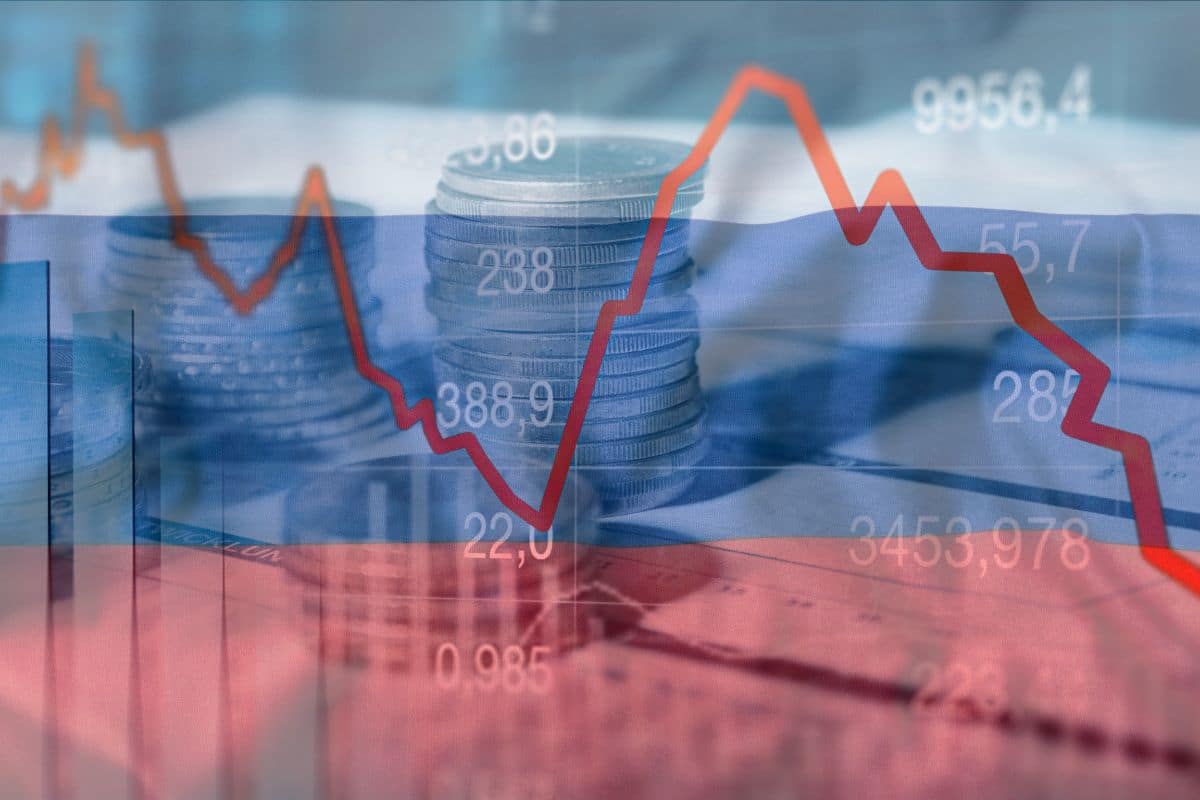
Investors React to the Ongoing Crisis
Investors have been closely watching the situation in Ukraine, with market analysts suggesting that the ongoing crisis could have a significant impact on global investment returns. The potential for further escalation of the conflict, coupled with the possibility of economic sanctions on Russia, has left many investors concerned about the potential impact on their portfolios.
Several analysts have suggested that investors should remain cautious and avoid taking unnecessary risks. In particular, those with exposure to companies that could be adversely affected by the ongoing crisis should be prepared to re-evaluate their investment strategies.
At the same time, some investors have seen opportunities in the market downturn, with some taking advantage of the lower prices to buy into equities that have been undervalued as a result of the crisis. This approach, however, requires a significant degree of caution, as the situation in Ukraine remains highly volatile, and the market could continue to experience significant swings.
Conclusion
The ongoing conflict in Ukraine has had a significant impact on global investment returns, with markets worldwide experiencing significant declines in response to the invasion. While some investors have seen opportunities in the market downturn, most have adopted a cautious approach, wary of the potential risks posed by the ongoing crisis.
As the situation in Ukraine continues to unfold, it is clear that investors will need to remain vigilant and prepared to reevaluate their investment strategies at short notice. The geopolitical turmoil has highlighted the importance of diversification, risk management, and a long-term investment approach that can weather short-term market volatility
If you would like to review your current investments or wish to consider taking advantage of today’s markets then it is advisable to speak with your financial adviser.
Financial updates February 2023
By Katriona Murray-Platon
This article is published on: 19th February 2023
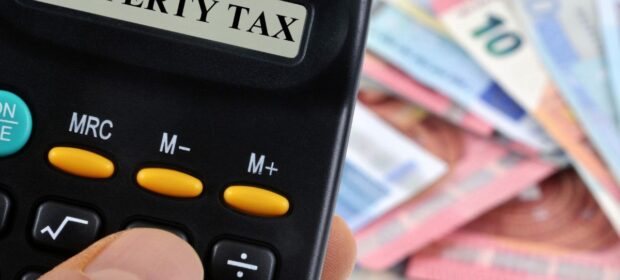
The Taxe d’habitation has officially been scrapped for main residences in 2023. However in order to find out which properties may still be subject to taxe d’habitation (second homes, rentals etc) and the tax on vacant lodgings, the French tax authorities are requiring all those who own their own homes, second homes or rental properties to do a new declaration before 1st July 2023.
I’m so glad that February is here. After a long and cold January it’s so nice to see the bright sunshine and the mimosa flowers in my garden. That said January wasn’t too bad since I was able to get away for a lovely week in Gleneagles in Scotland for the Spectrum conference. It was a fun week of meeting with product providers, celebrating 20 years of Spectrum, highland games, walks in the Scottish countryside, and horse riding. If you thought the 2022 was a difficult year in the markets you were right. When I spoke to our product providers at our conference they told me that 2022 was one of the most difficult years they had ever experienced. Not only were equities down but the bond markets suffered too. No one can say what may happen in the future, but we can always hope, and already there are signs of improvement in 2023.
The Taxe d’habitation has officially been scrapped for main residences in 2023. However in order to find out which properties may still be subject to taxe d’habitation (second homes, rentals etc) and the tax on vacant lodgings, the French tax authorities are requiring all those who own their own homes, second homes or rental properties to do a new declaration before 1st July 2023. This includes properties held jointly, usufruitiers and properties within an SCI. This service is available on your online tax account from 1st January 2023 and the declaration has to be completed by 30th June 2023.
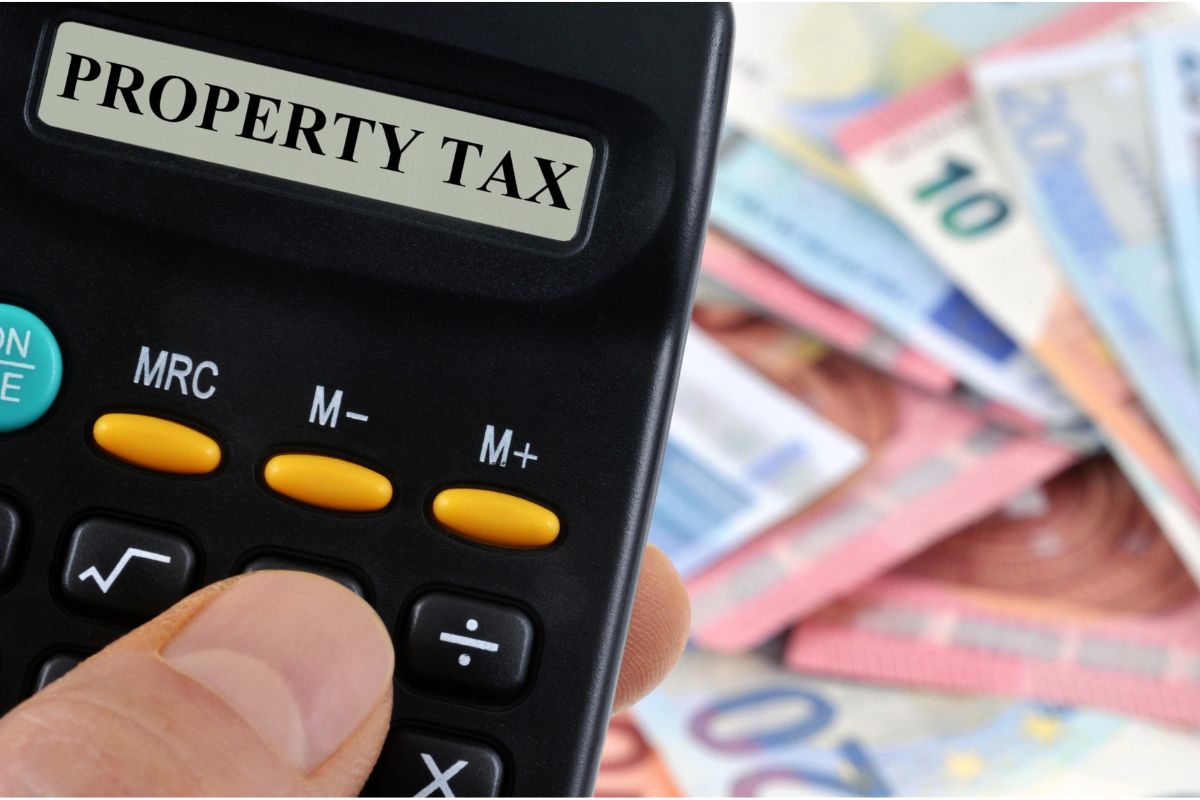
I had a go at doing this declaration on our own tax account and it is really quite easy to do. If you log into your account on the French tax website (impots.gouv.fr) , at the top there is a tab at the top with “Biens Immobilier”, you click on that and it will show all the properties you own, this will include any garages or out houses on your property. There should be a blue alert bubble saying how many declarations you have to do. You click on that and you will see exactly which declarations need to be done. Then you click on the option to declare your property. It will list the named occupants of the property, if nothing has changed then click on “aucun changement” (no changes) and then “valider” (approve) then it’s all done! The whole process took about 5 minutes, much less than the actual income tax return! In our case they listed our house and garage separately so I had two separate declarations to do for these. My husband is also a “nu proprietaire” of his mother’s house following the death of his father some 20 years ago. This house was listed but all we could do was consult the declaration, we didn’t need to do this declaration as his mother is the occupant of this property.
This declaration has to be done and there could be a fine of €150 per building for not declaring or for any mistakes or omissions on the declaration. If you have any questions you can contact the tax office via the messenger service by choosing the option “j’ai une question sur le service Biens Immobiliers” (I have a question on the property service).
The tax brackets have been officially increased by 5.4%. I wrote about the new tax brackets in my November Ezine but I will publish them again when we get closer to tax season. There is good news for parents with young children who go to a nanny or nursery, the amount of expenses allowed for the tax credit has finally been increased from €2300 to €3500 per child (making the total tax credit €1750 per child) and this will apply to your childcare expenses in 2022.
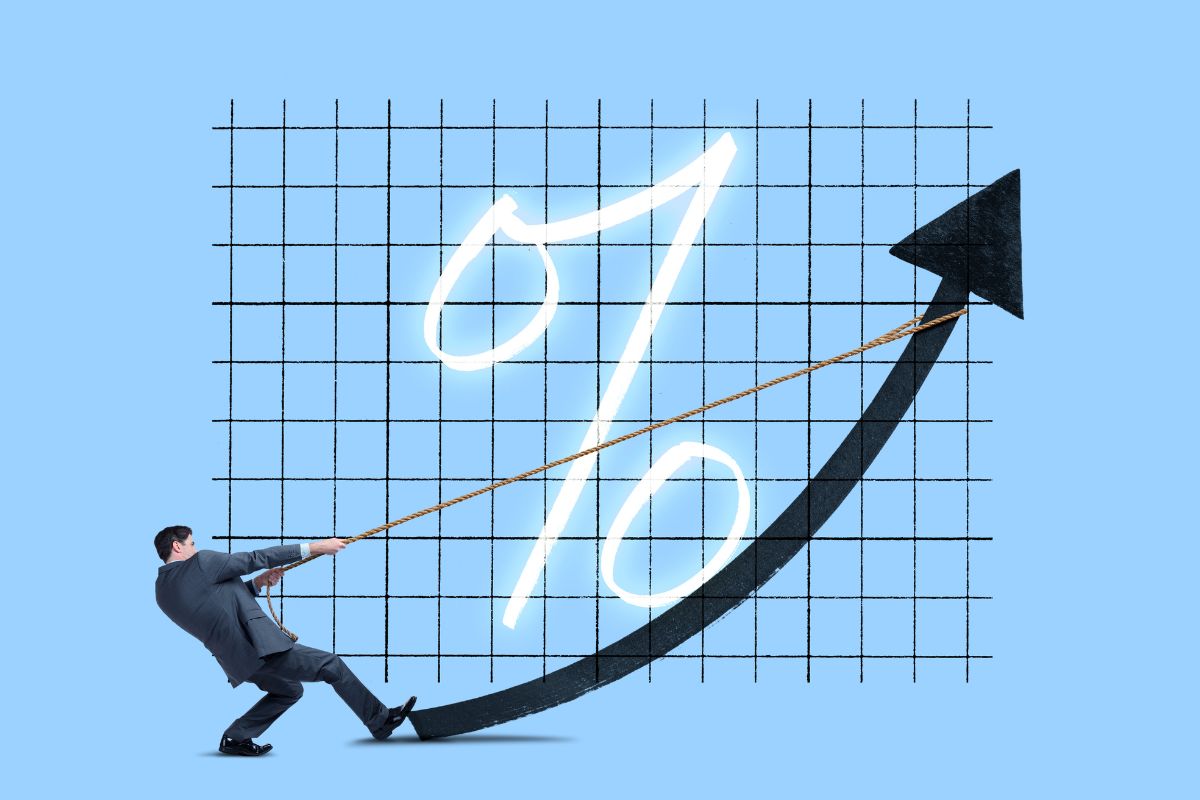
Further good news is that the savings accounts the Livret A and the LDDS, which did have a 2% interest rate have now been increased to 3%. The LEP now will have an interest rate of 6.1%. However bear in mind that the maximum deposit into the Livret A is €22950 and 3% of this is €689. The LDDS maximum balance is €12,000 at 3% this equals €360. Presuming you meet the income threshold, you can only put a maximum of €7700 which at a rate of €6.1% would earn you €470. So on €42650 of capital put into these savings account, you would earn €1519 fee from tax and social charges or 3.56%. Furthermore these amounts are paid yearly not monthly or quarterly so you will only receive these amounts on 1st January of next year.
Finally if you didn’t do any renovations or improvements to the energetic efficiency of your home in 2022 you can still do so in 2023, irrespective of your level of income. The renovation bonus or MaPrimeRenov’ has been extended until 31st December 2023 and the amount of financial assistance available has also been increased. To find out what you can do according to your income levels and what financial assistance you can receive, this document is useful: https://www.ecologie.gouv.fr/sites/default/files/19164_maPrimeRenov_DP_Janvier%202021.pdf It unfortunately dates from January 2021 so needs to be updated with the new amounts but it is still useful to give you a rough idea.
If you have any questions on any of the above or any other financial matters please do get in touch.
Finance in France – what’s new in 2023?
By Sue Regan
This article is published on: 12th January 2023

Firstly, I would like to wish you all a very happy, healthy and peaceful 2023!
As we are starting a new (tax) year I thought it would be helpful to update you on some changes that may affect you in 2023, both tax related and more generally.
Unsurprisingly, the main purpose of ‘la Loi de Finance’ (Finance Act) for 2023, published on 31st December 2022, is to help protect households and businesses from inflation.
Personal Tax Changes in 2023 for revenue received in 2022
In order to contain the effects of inflation on the level of household taxation, the Finance Act for 2023 has increased the tax brackets of the progressive ‘barème’ scale, applicable to income received in 2022, by 5.4%. That’s almost four times higher than last year. There are no changes to the rates of tax.
Increase in income tax brackets
The progressive barème scale for income received in 2022 is as follows:
| Income threshold for single person household | Tax rates |
| Up to 10,777 € | 0% |
| From 10,078€ to 27,478 € | 11% |
| From 27,479 € to 78,570 € | 30% |
| From 78,571 € to 168,994 € | 41% |
| over 168,994 € | 45% |
As France pools allowances for households of more than one person, the threshold for tax-free income received in 2022 by a household of two will be in the region of 29,000€.
Social charges
There have been no changes made to the rates of social charges for 2023 and they remain as follows:
| Employment income | 9.7% |
| Pension income | 9.1% |
| Investment income | 17.2% |
The special lower rates also remain in place as follows:
Pensions
The rate of social charges on pension income is reduced to 7.4% for those households where taxable income is less than around 2,000€ per month (or 3,000€ per month for a couple). Holders of the EU S1 certificate, and those who are not affiliated to the French health care system, are exempt from social charges on pension income, regardless of the amount received.
Investment income
As above, for holders of the EU S1 certificate, and/or those covered under the health care system of another EU/EEA country, social charges are reduced from 17.2% to 7.5% for investment and property income.
Taxe d’Habitation
Good news for homeowners and renters living in France! The phasing out of taxe d’habitation which began a few years ago will come to an end in 2023, with this property related tax being scrapped for all principal homes in France. This also includes the abolition of the TV licence (contribution a l’audiovisuel public).
However, second-home owners and owners of vacant properties are still liable to pay taxe d’habitation on these properties.
Wealth tax on real estate – Impôt sur la Fortune Immobilière (IFI)
The current threshold of 1,300,000€ will remain in place for 2023 with no changes to the scale rates of wealth tax.
Assurance Vie
There are no changes to the taxation of assurance vie policies or their inheritance planning benefits. Thus, these popular investment ‘wrappers’ remain a very attractive vehicle for both personal taxation and inheritance planning.

So, what else is there to know…………
Energy prices are going up
With inflation in France at its highest in decades and global energy prices having sky-rocketed in 2022, 2023 is set to start with a series of price hikes. Firstly, the 4% cap on energy tariffs went up on 1st January, meaning a potential increase of up 15% on gas and electricity bills. In practice, this means that average household bills are likely to go up by around 20€ a month.
Petrol subsidies come to an end
Petrol prices increase from January, with the government’s fuel rebate ending on December 31st. However, a fuel grant of 100€ is available for low-income workers who rely on their car for work. Full details can be found in this link to the government website Indemnité carburant de 100 € : comment ça marche ? | impots.gouv.fr
Increase in the minimum wage
France’s minimum wage (or SMIC) has gone up 1.8%, putting the gross monthly wage at 1,709.28€ or 1,353€ net. Importantly, this figure is used as the basis for calculating the sufficient funds needed for a French visa, so we can expect the required minimum income to go up accordingly.
Increase in motorway tolls
French motorway tolls are set to go up from 1st February with an average 4.75% increase.
Expected increase to savings interest rates
The interest rate on the popular tax-free savings accounts, the Livret A and the Livret de Développement et Solidaire (LDDS), is re-assessed every six months and it is expected that the rate will be increased to at least 3% per annum on both accounts with effect from 1st February.
France is going paperless
You will have probably already noticed that some stores are asking if you want a receipt or not, and more and more shops are offering the option for an emailed receipt. From April, this more eco-friendly practice will become standard practice at all shops. Thus, if you still require a printed receipt, you will have to specifically ask for one.
Cold call relief
Some better news if, like me, you are constantly being harrassed by cold callers – new regulations from next March mean that commercial phone calls can no longer be made on weekends, evenings after 20h00, or lunchtime from 13h00 to 14h00.
Review your finances
The last few years have been somewhat different to say the least. A global pandemic swiftly followed by war in Europe, both of which we haven’t experienced for generations. These highly unusual events have proved very challenging for many including governments, health workers and investors. The start of a new year is always a good time to review your finances. I am here to help and I would be very happy to sit down with you for a review to ensure that your financial plan is on track to achieve your longer term objectives. Please contact me at sue.regan@spectrum-ifa.com or call me on 06 89 20 32 47.
Have you prepared ‘THE’ Folder?
By Sue Regan
This article is published on: 9th January 2023
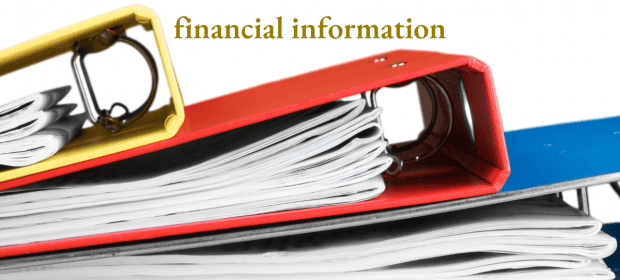
I like to read articles written by my Spectrum colleagues, especially those working in France, but also those by colleagues working in other European countries as I find it interesting to read what the hot topics are in their areas and how they compare to France. I came across a very interesting one recently entitled ‘THE Folder’, written by my colleague, Gareth Horsfall, who lives and works in Italy.
The article is of universal interest and although the subject matter could be viewed as having rather depressing undertones, it includes some really useful tips on keeping our affairs in good order, not only for ourselves but, more importantly, to help those close to us who may be tasked with taking over at a time when we may not be around to/or capable of doing it ourselves. Under ‘normal’ circumstances this would be a stressful and difficult time for family but potentially far more difficult for anyone trying to deal with the affairs of someone who lives/lived in a different county, with little or no knowledge of that country’s legal or financial system and unable to speak the language.
I like to think of myself as being fairly well organised when it comes to keeping my ‘filing’ in order. I say ‘my filing’ because my husband sees finance and admin as my department (not surprising given my occupation) and he is more than happy to leave everything to me. Like many of you, I am sure, I have a drawer with lots of itemised dividers separating out all our important documents, statements, bills, birth & marriage certificates, etc so that I can lay my hands on everything very quickly, and I have a spreadsheet of our various bank accounts, investments and pension arrangements, etc so that I can keep track of everything.
For a while now, I have been mindful of the need to provide relatives with details of our affairs, especially as we live in France, which only further complicates matters for them if left to take over. However, on reading Gareth’s article, I realised that there is so much more I should do to make things as easy as possible for them if the unthinkable were to happen. So, I have made a start on putting together ‘Our Folder’ based on the very comprehensive list in Gareth’s article, which I have used below to share with you in the hope that it will be a useful guide for those of you who may need it.
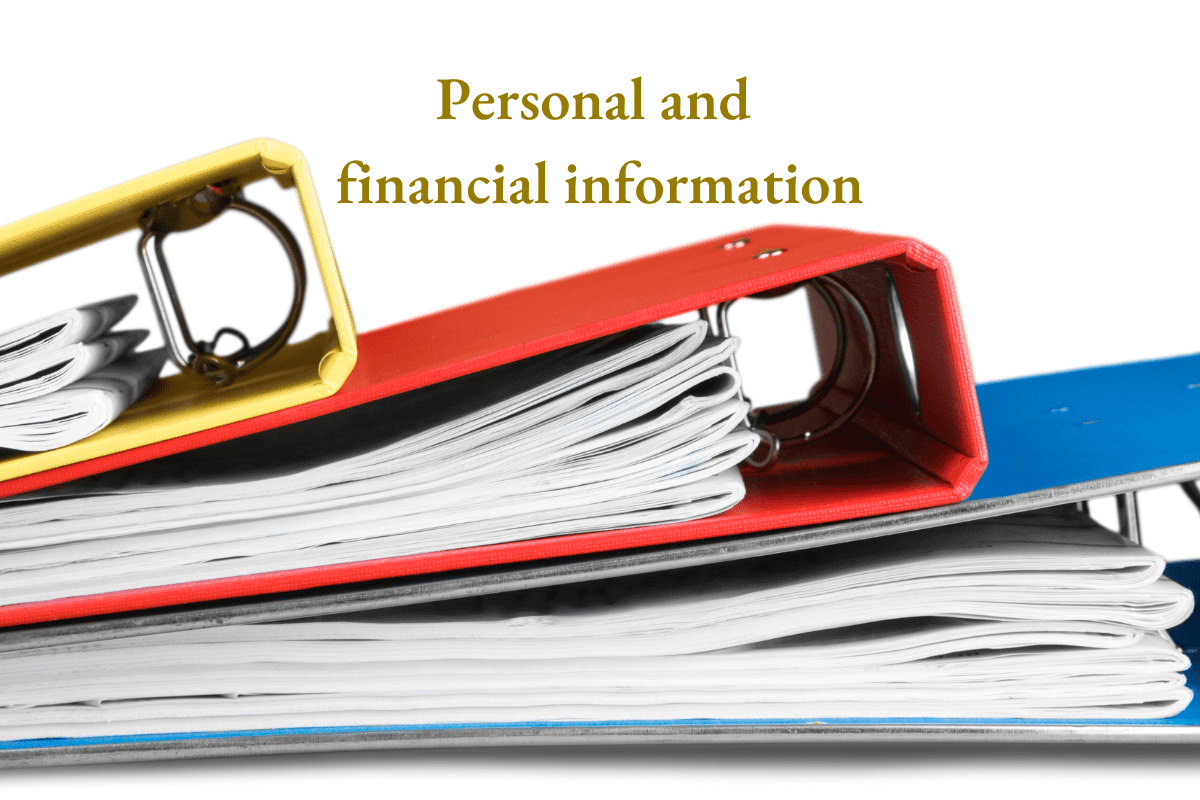
So what is ‘THE’ folder?
It is a single file (digital or physical – preferably both) where you keep all of your important personal and financial information together. It allows easy access to these documents in the event that you’re no longer around to help. It is really important to have it in place especially where one family member takes the lead with the family finances.
It seems like a lot of work – is it worth the effort?
Yes, absolutely! A time of loss can be stressful enough without having to try and piece together the deceased’s financial affairs. Don’t underestimate the benefit this will provide to the executors of your estate if you have one place with all your financial and legal documents in an easy to understand format. I know from experience it will be very much appreciated – my dear Dad was a stickler for record keeping and had put together his version of his and Mum’s ‘Folder’ which made it much easier for my Mum, my sisters and I to sort things out after he passed.
However, preparing ‘THE’ folder is more than avoiding stress – if you leave behind an administrative nightmare you could delay the accessing of funds by inheritors and the potential for racking up sizeable legal fees.
So which is best…..physical or digital?
This comes down to personal preference, but I would recommend both, if possible. Whether you choose to have a digital folder with all these documents in or not, you should at the very least have your documents scanned in case of fire or theft, and quite often companies will now accept scanned copies of documents instead of hard copies, if they can be certified or electronically signed.
A digital file can be password protected and you can give access to a trusted individual who can access it in the event of your death. (Remember they will also get access during your life, so ensure they are a ‘trusted’ individual). A Google file, for example, can be updated over time and to which you and a family member have shared access. This file can then be stored on your main computer, in the cloud or on an external hard drive. You can use a physical folder to keep hard copies of all the same information together.
I will do both when building ours, as I still like to have paper copies, and I will share the digital folder with family members.

So what should go in ‘THE’ folder?
Essentials
- Wills / Testaments + details of the Notaire or legal firm that helped create it, if relevant
- Instruction letter/bequests
- Trust documents
- Burial / Cremation wishes
- A copy of a living will, should you have ‘end of life’ instructions that you want medical professionals to be aware of should you be unable to communicate these due to severe illness or disability
- Copy passports and driving licences (in case originals go missing)
Birth, marriage and divorce
- Personal birth certificate(s)
- Deed Poll documents
- Marriage certificate
- Divorce papers
- Birth certificates / adoption papers for minor children
- Livre de Famille (if you have French nationality)
Life insurance and retirement
- Life insurance policy documents, including beneficiary nomination forms
- Details of any employer death in service benefits
- Personal pension documents (including any beneficiary nomination forms)
- Occupational / Final Salary pension details
- Annuity documents
- Details of any entitlements to state pensions
Bank accounts
- List of bank accounts with account numbers, contact details, login details and passwords
- Details of any credit cards
- Details of any safety deposit boxes
Assets
- Property, land and cemetery deeds
- Timeshare ownership
- Proof of loans made
- Vehicle ownership documents
- Stock certificates, brokerage accounts, investment platform details and online investment account details
- Details of holding of premium bonds, government bonds and investment bonds (including assurance vie policies)
- Partnership and corporate operating/ownership agreements ( including offshore companies)
Liabilities
- Mortgage details
- Proof of debts owned
- Details of gifts (whether notarised or not)
- Dates and amounts / values (potentially helpful when calculating inheritance tax liabilities)
Income sources, tax and social security
- Making a list of all your sources of income, especially the ones which your family may not know about
- Employer details
- Social security affiliation (CPAM, URSSAF)
- A copy of your most recent tax return or accounts
Monthly expenses (so they can be continued after death or accounts closed)
- Utilities
- Insurances – car, house, medical/Mutuelle, travel
- Rent / mortgage
- Loans
- Subscriptions / membership details / TV supplier
Email and social media account details
Contact details
- List of names and contacts numbers for: financial adviser, doctor, lawyer/solicitor/notaire, accountant, insurance broker etc
- A trusted Handholder or Professional Translator who could translate documents and would be willing to attend meetings with family members who do not speak French

How often should ‘THE’ folder be reviewed?
Firstly, it is sensible to note the date that it was last reviewed so that anyone using it has an idea of how up-to-date the details are. Going forward, reviewing the file on an annual basis should be sufficient.
And finally…
We’re coming into winter now – what better time to make a start? Ensuring that your papers are in order in the event of your sudden death is incredibly important when living in another country. It will provide you with peace of mind that your loved ones will not have too much difficulty in administering your estate and your family will be eternally thankful that you did it for them. Once it’s done be sure to tell someone about it. There is little point going to the effort of creating such a folder if no-one knows of its existence or where to find it!
If you need help with putting your folder together, are unsure where to start or would simply like a review of your financial situation please feel free to contact me below.
Tax credits in France
By Katriona Murray-Platon
This article is published on: 9th January 2023
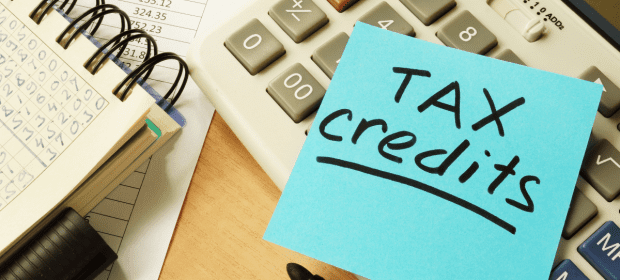
Happy New Year! I wish you all a very happy, healthy and prosperous year in 2023! I hope you all had a nice Christmas. We made it to Disneyland in spite of the train strikes in France and then onto the UK for our first British Christmas since 2018! It was good festive fun!
As from 15th January 2023, the tax office will pay you a 60% advance on some tax credits and tax reductions. These include the tax credits/reductions for charitable donations, home help costs and childcare costs. This will be 60% of the amount declared in 2022.
In my last Ezine, I mentioned the fuel allowance. Now, since 22 December 2022, there is an allowance of between 50 and 200 euros for those using logs or pellets to heat their homes. This is for people with less than 2260 euros income per month for a single person or 4750 euros for a couple with 2 children. You will need to request this payment by going to this website https://chequeenergie.gouv.fr/beneficiaire/eligibilite.
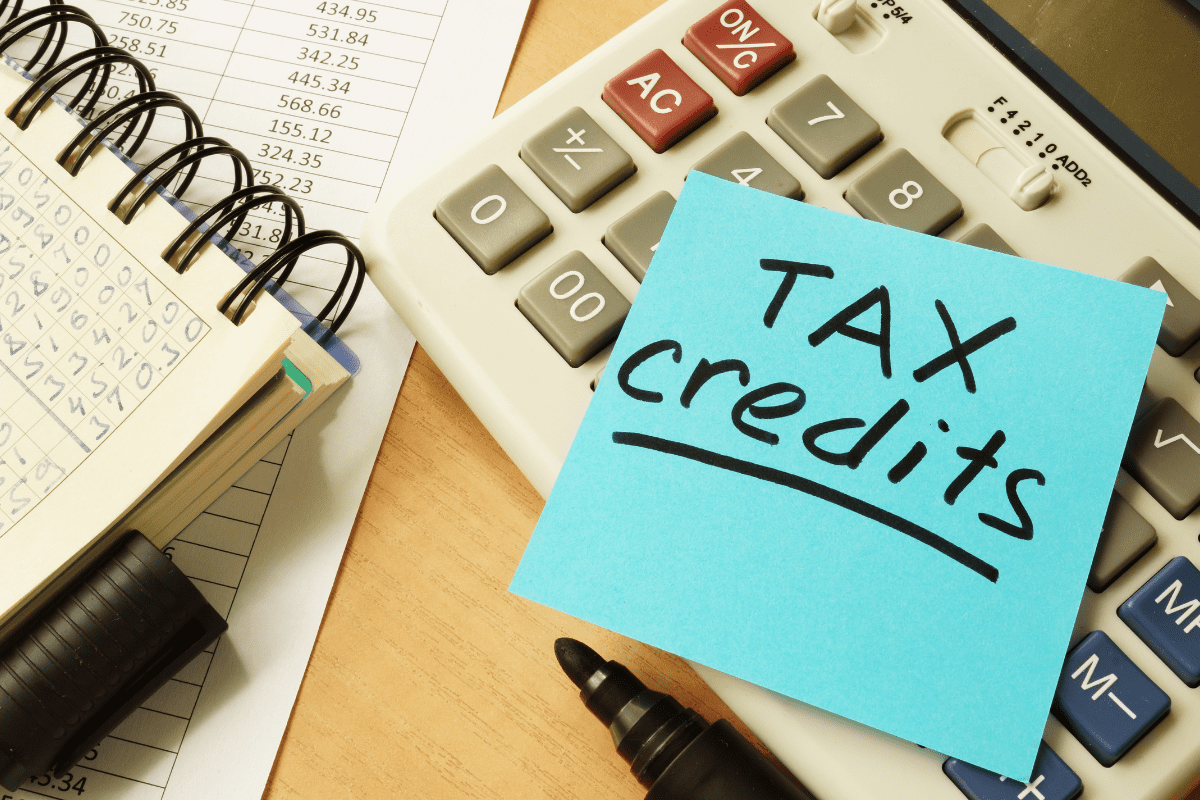
Since 1st January, receipts and bank card receipts will only be printed if you specifically request them. Also, from 1st January, companies (Entreprises individuels and SCIs) can do their own formalities online on formalites.entreprises.gouv.fr
No need to throw out your equipment when it breaks down. From 15 December 2022, it is even cheaper to repair your household appliances. There is a now a government allowance of between 10 and 45 euros off the price of repair depending on the type of appliance which works out to be around 20% of the repair costs. This only applies to appliances that are no longer covered by their warranty. For more details and to find an approved repair company go to: https://www.ecosystem.eco
Finally, in Spectrum news, from 16th to 20th January I shall be joining my colleagues for our annual conferences at the Gleneagles hotel in Scotland. As you know my name is Scottish and my father and his family are from Scotland, so I am very much looking forwards to going there and celebrating Spectrum’s 20th anniversary!
After five full years in the business I am beginning to get a sense of how variable each year can be. We have had three very strange years from covid and lockdown, to coming out of lockdown and getting vaccinations and then last year the war in Ukraine and inflation. Some analysts suggest that inflation may subside in 2023 but stop short of actually predicting this. Nobody has a crystal ball but I know what I do have that’s important which is my family, my friends and my clients. I’ve got you and you’ve got me, so whatever 2023 holds, I know that we can see it through together!
All the best for 2023.
Financial update in France
By Katriona Murray-Platon
This article is published on: 6th December 2022

The fuel allowance, tax returns & retirement planning
So here it is, Merry Christmas! I hope that you are having fun or planning to do so. There is much to organise before the end of the year, so before you get too wrapped up (excuse the pun) in Christmas preparations, I wanted to fill you in on some bits of news/financial points for the end of the year.
Given the increase in energy bills, the French government shall grant two one-off fuel allowances to help people pay their energy bills. Around 12 million homes will receive a one-off energy cheque. If you are eligible for the fuel allowance you should receive this €200 cheque automatically,. If your taxable income (revenu fiscal de référence par unité de consommation (RFR/UC)) is greater or equal to €10 800 € and less than €17 400, you will receive a cheque for €100. This cheque will be sent automatically from the end of December, you do not have to do anything to get it.
For the homes using “fioul domestique” : If you have already received the energy cheque for 2022 and you have used it to pay for your heating from a “fioul domestique” supplier you will automatically receive another cheque for €200 from November 2022
If you haven’t received this yet or you want to check whether you are available there is a website here https://chequefioul.asp-public.fr/ and through this you could receive a cheque for between €100 and €200 depending on your situation. If you haven’t received any cheques and you can’t make a request on this website you can contact them via this website: https://chequeenergie.gouv.fr
For those of you thinking of replacing your heating system with something more energy efficient, since the 29th October, the lower income households could receive €5000 of state aids (instead of €4000) and other households could get up to €4000 instead of €2500.
The annual social security ceiling (plafond annual de la Securité social) which is used to calculate various retirement contributions and the maximum allowed amount of benefits and French pensions has increased to €43,992. A monthly maximum of €3,666 will apply from 2023. This is the first time that this has increased in three years!
Please note that you have until 14th December to correct your 2021 tax return on your personal account on the impots.gouv.fr website. After this date you will have to correct it using a paper return.
The 15th December is the last day to pay the taxe d’habitation for second home owners in France. You have 5 extra days if you pay online or by direct debit.

If you are self-employed in France and earn over €5000 per annum, you will have to pay CFE. This is a local tax and is based on the rental value of the space you use for your business. If you don’t rent premises for your business, you have to pay the minimum CFE and this will be calculated on your annual turnover. It all depends on the rate applied by your local authority. The CFE must be paid by 15th December. You can also spread the payments out over the year.
Finally, if you are still actively working in France and are likely to do so for the next 10 or 15 years or more, and you pay tax at least in the 30% tax bracket, it may be worth opening a PER. If you already have a PER, and you have some money to invest in it, make sure you do this by the end of the tax year, ie 31st December 2022. If you are in the 30% tax bracket, 30% of the amount you invest in the PER can be deducted from your tax (41% if you are in this tax bracket) up to a maximum amount of 10% of your net taxable income from the previous year and up to a maximum amount of €32,419 in 2022.
2022 has been a brilliant year for me, my best so far, and I have been so happy to welcome lots of new clients.
I want to thank all of you for your time and attention to these newsletters and your kind comments. I especially want to thank all my clients for entrusting me to set up their investments. As always if you have any questions on the above or any other matters please do get in touch.
I shall be away from 18th to 28th December, first to Disneyland Paris and then to the UK for a good ol’ British Christmas with my family. I will be checking emails and can do phone calls if necessary.
I wish you all a very Happy Holiday season and look forwards to speaking to you next year!
Regards
Katey Murray
Partner
The Spectrum IFA Group
Mob: 06 81 61 78 44
Tel: 09 53 28 88 22

International SIPPs
By Andrea Glover
This article is published on: 22nd November 2022
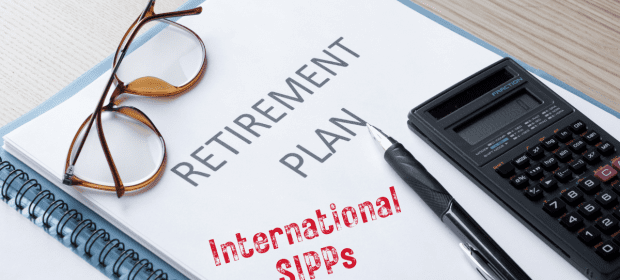
What are they and how do they benefit a non-UK resident living in France?
Myself and my colleagues have seen a significant increase in enquires this year from clients who have private pension schemes in the UK. Many are having difficulties accessing pension benefits for the first time due to changes post BREXIT or their UK adviser has informed them that they can no longer work with them, because of the post BREXIT rules on ‘passporting rights’.
One of the solutions that has helped many of these clients is a scheme called an International Self Invested Personal Pension (SIPP). So, I am going to explain the background to this product and why it might be the appropriate home for your pension funds.
The SIPP was first introduced in the UK budget in 1989 and following further regulation became a registered pension plan in April 2006. SIPPs were introduced to encourage individuals to save for their retirement.
SIPPs are often set up by the provider using a master trust and the provider will normally be the scheme administrator and trustee. The individual then become a member of the scheme and investments are normally in the name of the provider or the trustee but are earmarked for the individual member.
The main advantage of a SIPP compared to a traditional personal pension is the level of investment flexibility the member has, as the range of available investments is much wider than a standard personal pension.
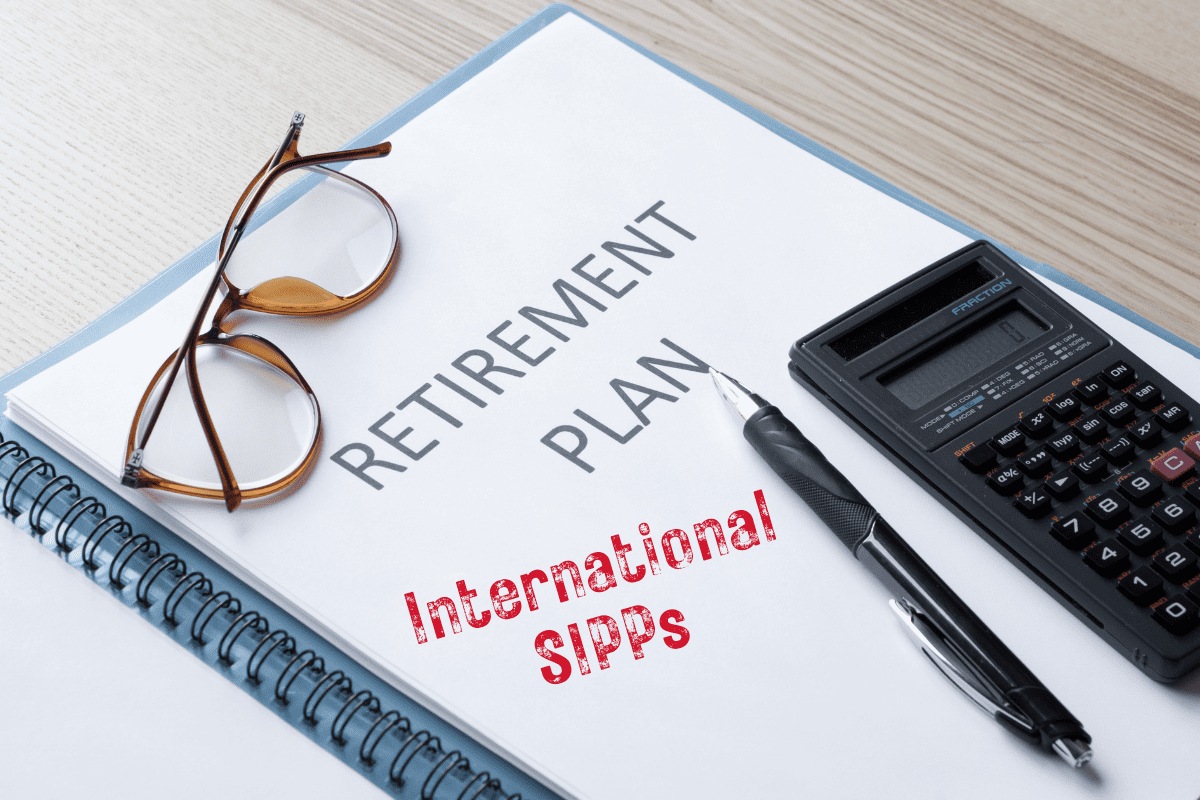
An International SIPP is a UK SIPP that has been specifically designed for non-UK residents. The structure is similar to that of a SIPP and both are regulated by the UK Financial Conduct Authority.
An International SIPP provides the ability to invest in several currencies and some providers allow withdrawals in euros, paid directly to a French bank account.
As with a SIPP, the international version allows you to transfer your pension or consolidate several pension plans into one simplified scheme. More importantly, the International SIPP allows a locally based, regulated financial adviser to implement an investment strategy and assist you with overall retirement planning.
It is also important to note that a locally based adviser will have knowledge of the French tax treatment of any income from the pension and the various options available.
You can transfer from most private or company pensions to an International SIPP and you can also consider transferring from a defined benefit or final salary scheme, if you’re not already taking benefits. However, you can’t transfer from an annuity or many of the public sector and government schemes.
If you have a very large pension pot, a Qualifying Recognised Overseas Pension Scheme (QROPS) may be a more suitable home for your pension funds, as it can help protect against future tax liabilities for those nearing the UK Lifetime Allowance (currently £1,073,100).
As with all such matters, it is important to seek advice from a regulated adviser to ensure that the appropriate recommendation is given for your individual circumstances.
Children and taxes in France
By Katriona Murray-Platon
This article is published on: 4th November 2022

I am the proud mother of two wonderful boys. I love my children very much, but in addition to the joy they bring to my life, they also bring tax advantages. Admittedly the tax benefit is probably less than the overall expense of having children, but one must count one’s blessings!
Let’s take a couple earning €60,000 per annum.
The current tax brackets for 2022 are as follows:
| Income | Tax rate |
|---|---|
| Up to €10,225 | 0% |
| From €10,226 to €26,070 | 11% |
| From €26,071 to €74,545 | 30% |
| From €74,56 to €160,336 | 41% |
| Over €160,336 | 45% |
*These tranches are likely to increase by 5.4% in 2023.
If they have one child? their tax is reduced by half a tax part. Whereas alone they were in the 30% tax bracket, with one child their income is divided by 2.5 to €24,000 per person, which puts them into the 11% tax bracket. Their tax bill would be €3,788 instead of €5,844. The child has saved them €2,056 of tax. If they had a second child, and on the same income, their tax would be €3,226. The second child has therefore saved them €562 euros.
In addition to lowering your taxes, if your child is under six and goes to a child minder or nursery, 50% of these costs, up to a maximum of €2,300 per child may be deducted, so a maximum tax credit of €1,150 per child. This is a tax credit, so in our example above, the couple would pay only €926 in taxes.
After six years old and until they go to high school, as delightful as they are during this time, there are no tax advantages. From high school onwards there is a small tax reduction of €62 per child in high school, €153 per child in sixth form college and €183 per child in higher eduction (provided it is non-remunerated studies).

However when they are in their 20s and pursuing further education, this is the time to look at whether you are better to keep them in your tax household or take them out of your tax household and deduct the money you give them to pay for their studies, accommodation and food etc. I remember, when I was a tax lawyer, suggesting to a lady who had four sons, that she should remove her youngest son from her household – she looked a bit shocked! I meant of course that she should take her son out of her tax household, not kick him out of her actual household. It is quite common for children in France to remain at home during their university studies. The money given to an older child is deducted from the household income before it is subject to tax.
For an adult child to be considered part of your tax household, they must be under 21 on 1st January of the tax year (so 1st January 2022 for the tax return done in 2023), or be under 25 years old on 1st January 2022 and in higher/further eduction as at 1st January 2022 or 31st December 2022. There are also various conditions for children living with an adult relative.
So if we look at the couple above and both their children are at university. In 2021 they could have deducted up to €6,042 per child from their income which would have reduced their tax to €3,021 for the two of them without the children instead of €3,226 had the children been included on their tax return. For 2022, according to the Draft Finances Bill, this deduction is increased to €6,368 per child. For the full reduction to apply, you must be able to prove that the child needs this money, that they are unable to work or, if they have a student job, that they earn less than the minimum wage. You can deduct up to this amount but you have to be able to prove the expenses if so requested. If the child still lives with you, you can deduct their accommodation and food bills, up to €3,592, without need to justify these expenses.
Once your child is removed from your tax household, this will mean that they have to do their own tax return and declare the financial help that you are giving them. However, if they are earning less than the first tax bracket (€10,225 in 2021, €10,777 in 2022) then they won’t have any tax to pay.
For any questions on Children and taxes in France or on your general financial planning in France, please do get in touch via the form below:


